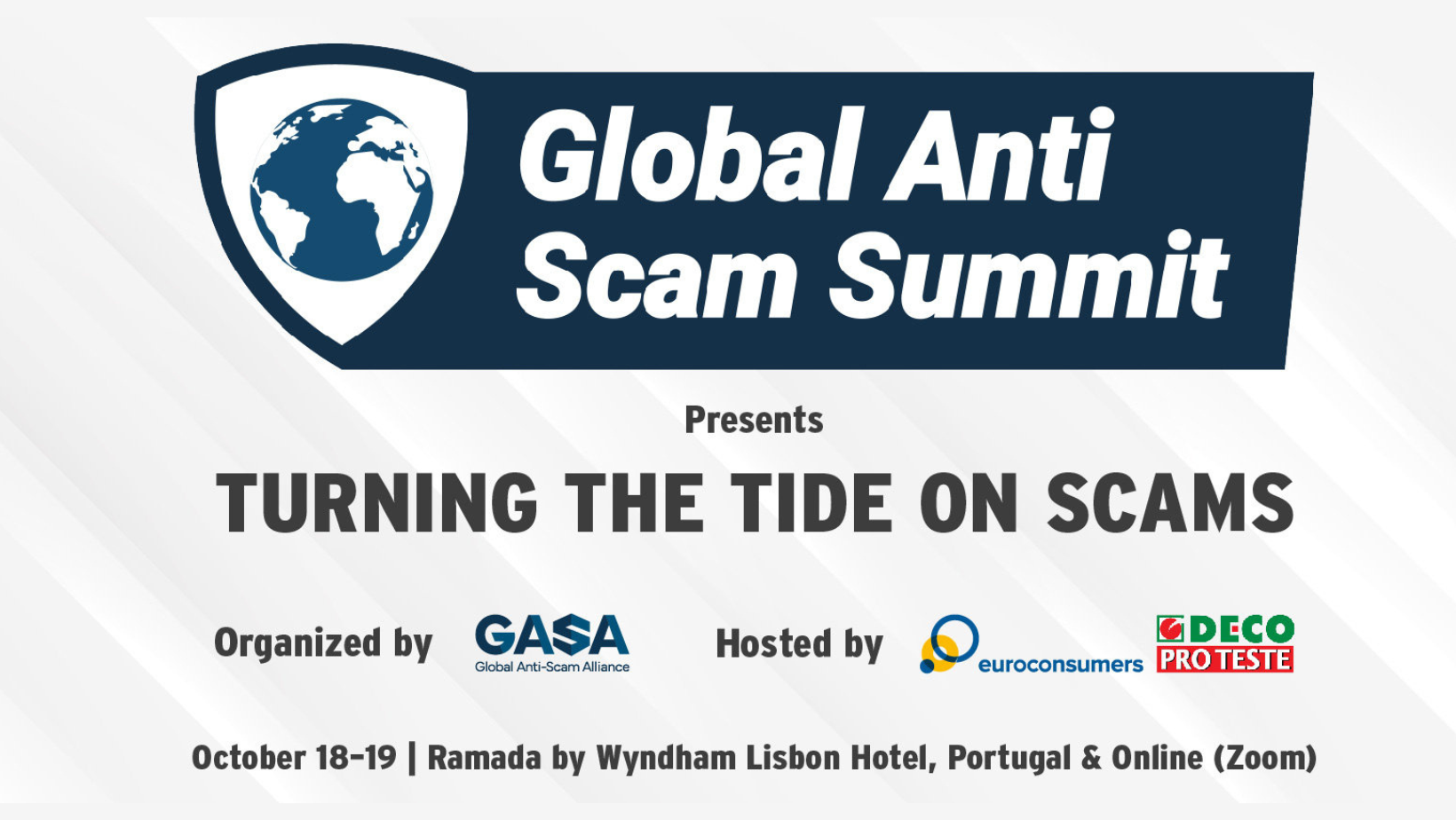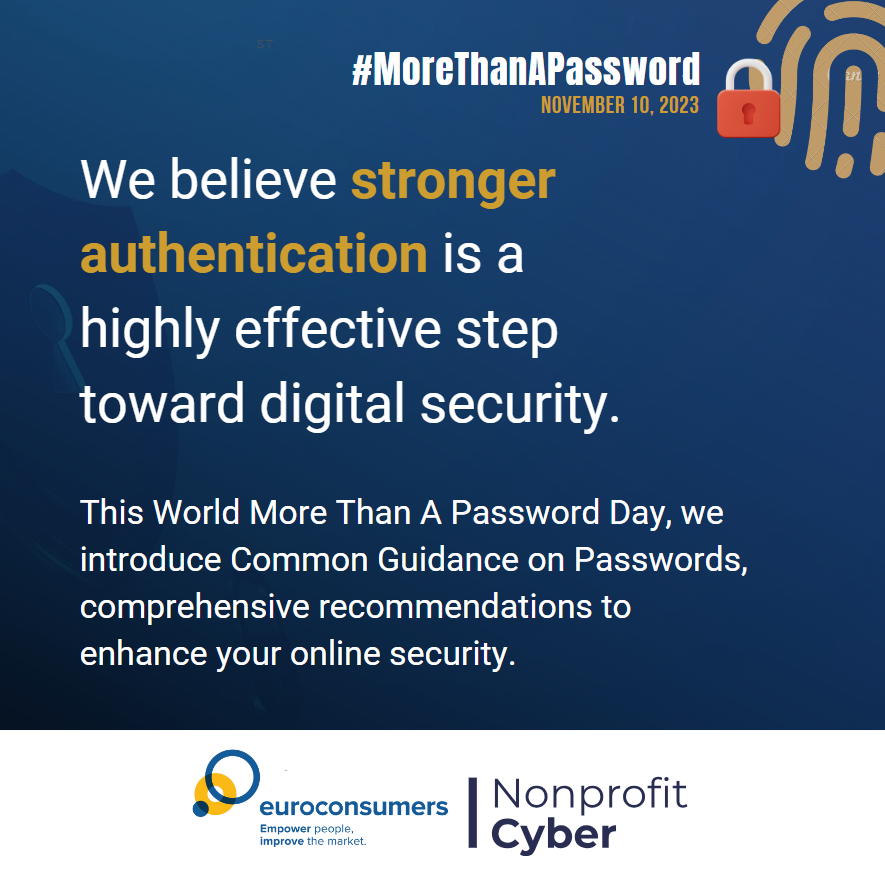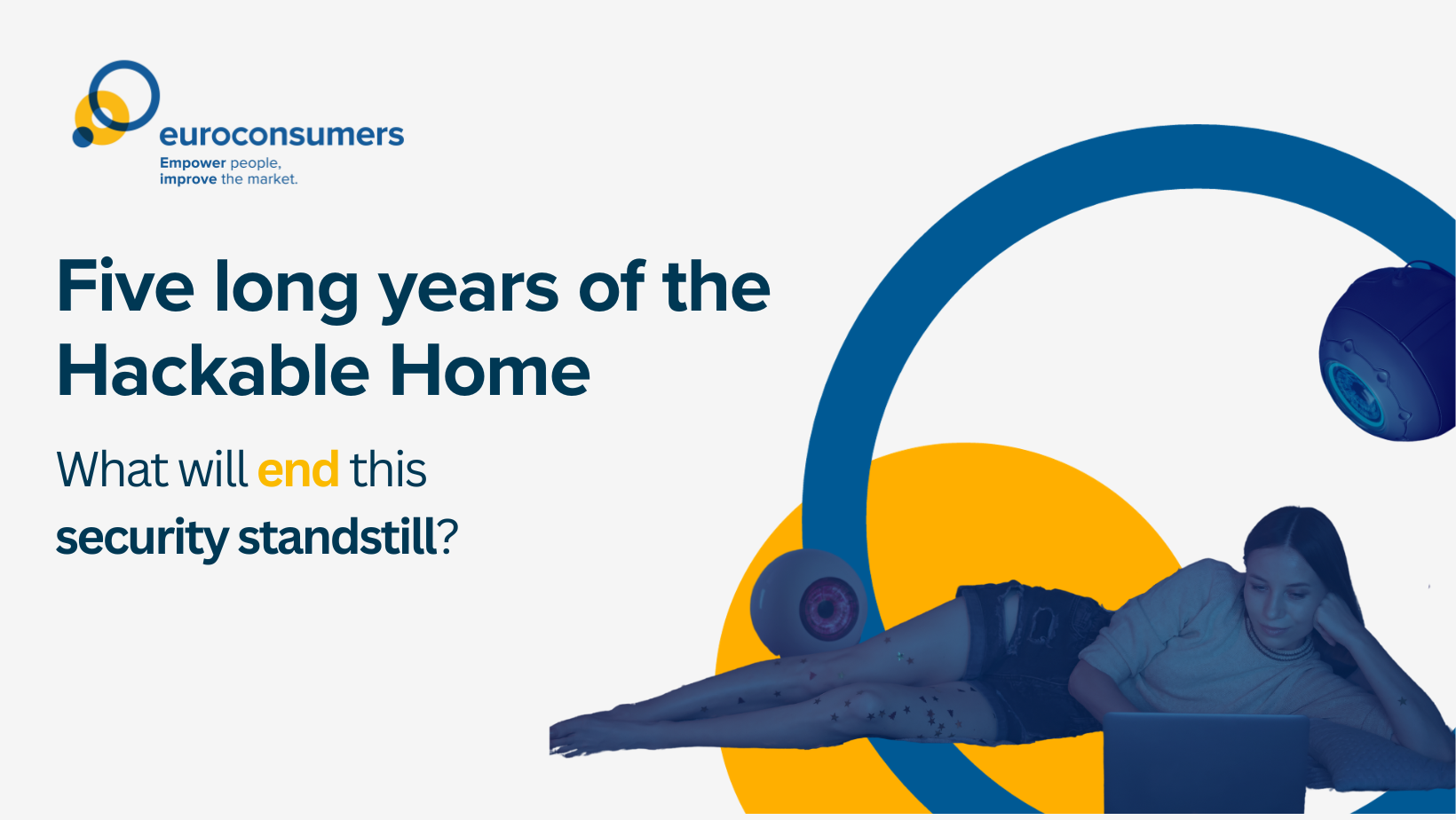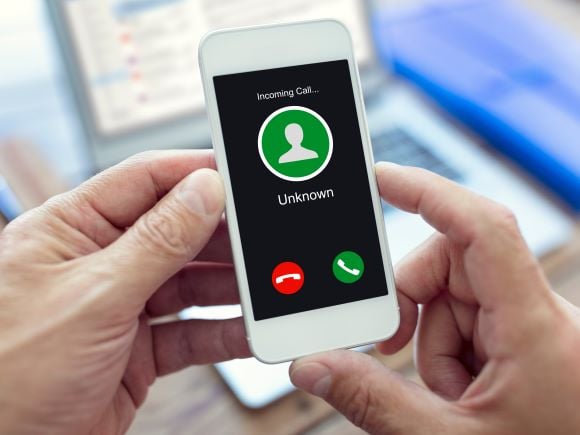Today on 10th November, Euroconsumers joins Nonprofit Cyber launch of “World More Than A Password Day“. Nonprofit Cyber is a global coalition of nonprofit organizations who have come together in a joint effort to improve cybersecurity.
Action to keep consumers’ data and identity secure is needed more than ever. According to the Global Anti Scam Alliance’s latest report, 25% of consumers across the world have lost money to scams or had their identity stolen in the past year.
Passwords are a vital first line of defence
It’s estimated that up to 80% of data breaches are caused by weak passwords. Creating strong, memorable and unique passwords are an important first line of defence and Euroconsumers has been helping consumers make choosing and using a strong password easier.
We have created the Space Shelter game where people can learn about protecting their information, and use its tool to craft a good, strong password.
Space Shelter is part of the wider Cybersimple programme launched with Altroconsumo our member in Italy and Testachats/Testaankoop in Belgium, with more tips on how to build a really strong password.
However, in a world of increasingly sophisticated attacks on data, strong passwords may not be enough of a deterrent against the risks from the fraud, hacks and scams. We need to think about ‘More than a password’ and look at a range of safety strategies and tools to improve the security of our online identities.
Multi-factor authentication: doubling down on security protection
Multi-factor authentication requires at least two ways to verify a person’s identity. As well as entering a password, a person might also be asked to confirm their identity by using a code sent as an SMS to a phone, clicking on an email link or using a separate PIN device. This gives additional layers of protection for a hacker to break through which disrupts or prevents attacks.
On ‘More than a password day’, new guidance has launched which details how multi-factor authentication can work alongside other strategies to shore up weak links in the cybersecurity chain.
- A secure email account: adding extra security to email access is important as this is the most common way that a criminal can reset passwords on other accounts. Always use a strong password plus multi-factor authentication
- Added layers of security: if used in addition to a password, hardware security keys or tokens or authenticator apps add another level of protection against phishing
- Techniques to pick passwords: for example using a longer passphrase that’s easy to remember but much harder to guess.
- Password manager: these use complex, randomly generated passwords and keep them in one place, so it’s critical to choose a strong but memorable password for the manager
- Password-free authentication: like passkeys that use biometrics and cryptography to verify someone’s identity.
- Emergency response: if any account or device is hacked then change all passwords immediately
At Euroconsumers our longstanding battle for better data security for consumers continues as more people and activity moves online.
We are proud to support the Nonprofit Cyber in getting the message out that internet security is about ‘more than a password’.
Today’s guidance is a welcome addition to the resources and advice we already share with consumers on how to secure their internet connection and stay protected from fraud, hacks and scams online.





